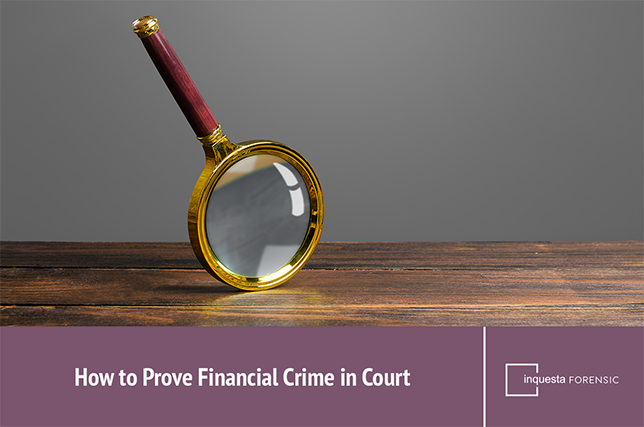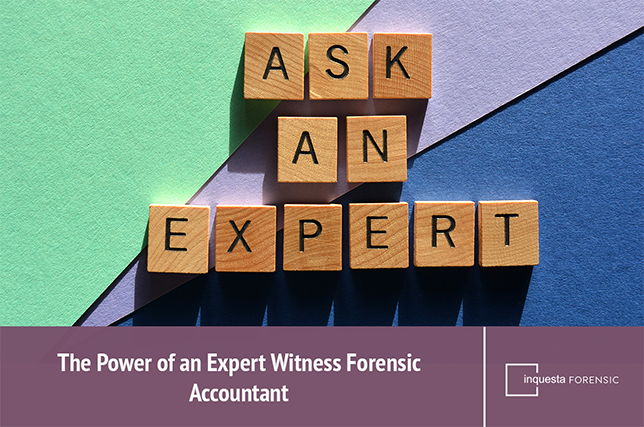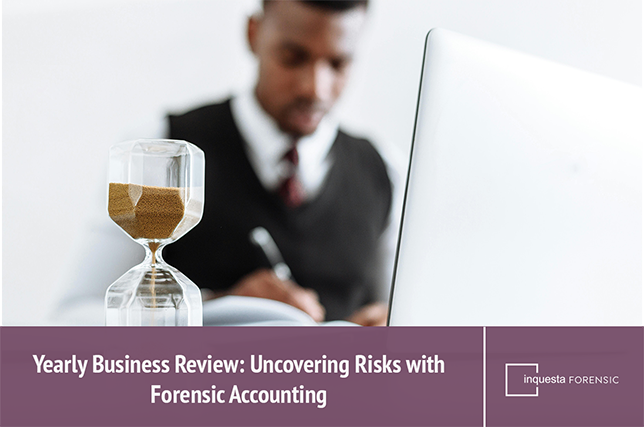Auditing and accounting are two extremely necessary and important parts of running a business. They both walk hand in hand and one cannot do without the other.
That being said, there is a popular misconception that the two terms are actually interchangeable and are actually one and the same thing. This could not be further from the truth. So, when it comes to forensic accounting vs auditing, what exactly is the difference?
Forensic Accounting vs Auditing: The Similarities
Before we discuss the differences between forensic accounting and auditing, it is first of all important to examine the similarities between the two. After all, for a misconception that they are the same thing to exist in the first place, there has to be a basis for this.
The first similarity between forensic accounting and auditing is that both disciplines require a thorough knowledge and understanding of accounting principles and basics. They are also carried out by professionals who hold a degree in accountancy. In addition, both forensic accounting and auditing use essential procedures and techniques of computation, analysis and book-keeping.
Perhaps the most important similarity between forensic accounting and auditing, and maybe the main cause of the confusion, is the fact that both disciplines involve producing reports to determine whether a firm’s financial records provide a fair representation of its current position. The reason for this, however, is completely different.
What is the Difference Between Forensic Accounting and Auditing?
Now that we have explored the similarities between forensic accounting and auditing, it is time to discuss how the two are different. The first point to consider is this: all auditors are accountants, but not all accountants are auditors.
This is because forensic accountants are those who, by virtue of their skills, attributes, and experience are experts in uncovering and documenting fraud in financial transactions. They also need to have knowledge of how to gather evidence of and document fraud for criminal and civil purposes, how to interview third-parties, and how to testify as an expert witness should a case go to court.
Another important difference between forensic accounting and auditing is how the disciplines are utilised. While auditors are tasked with determining whether a company’s financial statements offer a fair assessment of its current position, forensic accountants are instructed to do the exact opposite.
Forensic accountants are specifically deployed to uncover cases of fraud. Their primary objectives are to find out who committed the fraud, how it took place, how much money was taken, and how to stop it from happening again in the future. While a properly planned and executed financ

ial audit can sometimes uncover evidence of fraud, this is not the main function. An audit will not analyse every single transaction, nor will it look for fraud specifically. For more information about the objectives of a forensic accountant, please read our blog on the subject.
Auditors owe primary allegiance to the investing public, to ensure that shareholders are not being duped into parting with their cash on the basis of falsified financial statements. This is an ongoing responsibility, meaning their remit is often general in nature.
When it comes to forensic accountants, however, their remit is extremely specific. They are not concerned with reaching a general consensus on a firm’s financial status as a whole. Their objectives are clearly defined in an engagement letter, while their work is typically directed
through counsel, and is therefore privileged and confidential.
The final main point when it comes to comparing forensic accounting vs auditing is the process itself. Auditing will typically have a programme and plan from the start that does not diverge in any shape or form. In contrast, a forensic accountant’s investigation is not linear at all, and may require several pivots or new directions depending on the information that has been uncovered.
Other Important Differences
In addition to the main differences highlighted above, there are a few other reasons why forensic accounting is different to auditing.

These differences include:
- Timing: Audits are planned events and occur on a regular basis. Forensic investigations are non-recurring, reactive and unforeseen.
- Appointment: As alluded to earlier, auditors are appointed by the shareholders of a business. A forensic accountant is instructed by company owners, counsel, or third parties.
- Obligation: Forensic investigations are typically conducted on a voluntary basis because an act of fraud is suspected to have taken place. An audit is an obligatory undertaking for which a company must hire an auditor to carry out the role.
- Personnel: A financial audit is carried out by people who are certified public accountants (CPAs). On the other hand, a forensic investigation is carried out by a multidisciplinary team of professionals that often includes CPAs.
Do I Need a Forensic Accountant or An Auditor?
Even if you understand the difference between forensic accounting vs auditing, applying this knowledge to practical scenarios can be challenging. Although it can be broadly summarised as a matter of risk vs fraud, there’s also a question of how much focus should be applied on finances. Effectively, one method aims to fortify operations, while the other investigates misconduct.
To help you better understand forensic accounting vs auditing, here are a number of real world situations for each approach:
Common Situations Requiring A Forensic Accountant
- You suspect that there have been cases of fraud or theft.
- There is a discrepancy between assets and liabilities that can’t be explained.
- Reconciliation of accounts finds unusual results.
- Debts that should have been settled are unresolved.
- The business has been hacked and/or personal information has been stolen.
- A whistleblower has raised concerns about stolen assets etc.
Common Situations Requiring An Auditor
- Mistakes have been made, possibly due to issues with accountability.
- Projects can’t be completed without specialist intervention.
- Regulatory — or legal — changes have created operating risks.
- Employees are regularly breaching internal policies.
- Data breaches have taken place, or could in the future.
- The business struggles to comply with laws and regulations.
- Governance specialists don’t have a handle on minor details.
- There are issues with morale that could affect performance.
Forensic Accounting vs Auditing: Why Understanding the Difference is Essential
If you are a business owner, it is extremely important that you recognise the differences between forensic accounting and auditing. As we have demonstrated, the two are entirely separate services, each with their own unique objectives, processes, and responsibilities.
Should you suspect that you or your company have been the victim of fraud, it is essential that you seek expert assistance at your earliest opportunity. Only a specialist forensic accountant will have the specific training, knowledge, and skills required to carry out the work and bring the case to a satisfactory conclusion.
How Inquesta Can Help
As specialist forensic accountants, you can rely on Inquesta to assist whenever you suspect fraud. We have amassed decades of experience in helping firms from all areas of industry uncover instances of fraud, and educate business owners on how to protect their organisation in the future. This leaves us perfectly placed to do the same for you.
Our expert team will leave no stone unturned in their investigations, ensuring that all evidence has been thoroughly examined. We always endeavour to place the needs of our clients before everything else, so you can be confident that you are working with a company who is committed to providing you with the best possible results.
For more information about how Inquesta can help you, contact a member of our team today or request a free consultation.
- Your Partner’s Been Convicted: Can They Take Your House? What Section 10a POCA Means For You
- The Essential Role of Forensic Accounting in High Net Worth Divorce
- How to Value a Startup Business: A Guide for UK Entrepreneurs
- Pig Butchering Scams: Guide to Crypto Romance Fraud
- Shareholders’ Disputes: How Business Valuation Helps with Shareholder Dispute Resolution








